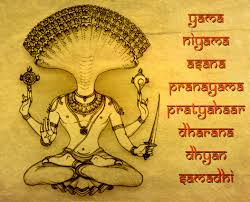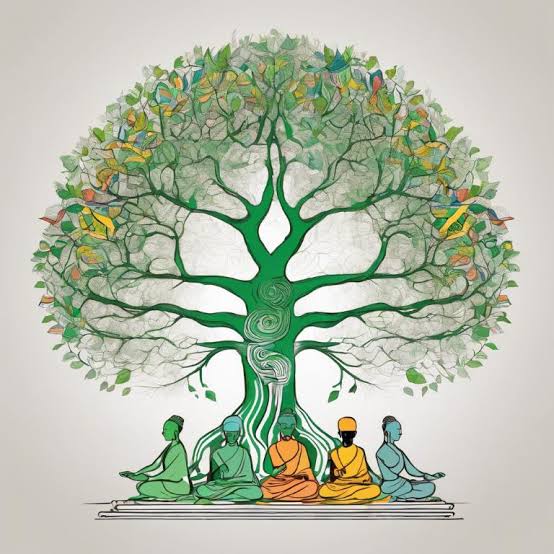PATANJALI YOG SUTRAS 196 APHORISMS ,SUTRAS WITH THEIR MEANING
Patanjali yog sutras from 1 to 10 sutras

- YOGA is important for peace and harmony so we have study each sutras and their meaning so we can achieve physical ,mental wellbeingness , patanjali yog sutras not for only physical health and yogic poster or exercise it is design for all aspects of life .it is in sanskrit we can get lot of meaning from it . there is lot of works on patanjali yog sutras
Patanjali’s Yoga Sutras from 1 to 10 with meaning
1. Sutra 1: Atha yoga-anushasanam
Meaning : Now, the teachings of Yoga begin.
This sutra signifies the beginning of the journey into Yoga, emphasizing the importance of being present and ready to embark on the path of self-discovery.
2. Sutra 2: Yogas chitta-vritti-nirodhah
Meaning : Yoga is the cessation of the fluctuations of the mind.
This sutra highlights the goal of Yoga, which is to attain a state of stillness and tranquility by quieting the mind and overcoming its restless tendencies.
3. Sutra 3: Tada drashtuh svarupe avasthanam
Meaning : Then the seer abides in their true nature.
This sutra suggests that through the practice of Yoga, one can experience a deep connection with their true self, beyond the fluctuations of the mind and ego.
4. Sutra 4: Vritti sarupyam itaratra
Meaning : At other times, one identifies with the fluctuations of the mind.
This sutra acknowledges that outside of the state of Yoga, individuals often identify themselves with the ever-changing thoughts and emotions of the mind, leading to a sense of confusion and disconnection.
5. Sutra 5: Vrittayah pancatayyah klishta aklishtah
Meaning: The fluctuations of the mind are of five types, and can be painful or non-painful.
This sutra categorizes the various types of mental fluctuations, highlighting that some thoughts and emotions can lead to suffering, while others can bring about a sense of peace and well-being.
6. Sutra 6: Pramana-viparyaya-vikalpa-
Meaning : Correct perception, misperception, imagination, sleep, and memory are the five modifications of the mind.
This sutra describes the different states of the mind, including how it can perceive things accurately or inaccurately, create imaginative scenarios, experience deep sleep, and remember past events.
7. Sutra 7: Pratyakshanumanagamah pramanani
Meaning: Direct perception, inference, and scriptural testimony are the three valid means of knowledge.
This sutra highlights the three ways in which we gain knowledge: through direct perception (our senses), inference (logical reasoning), and scriptural texts.
8. Sutra 8: Viparyayo mithya-jnanam-atadrupa-
Meaning: Misconception is false knowledge that is based on a false form.
This sutra emphasizes the importance of discerning between true knowledge and false beliefs, reminding us to question our assumptions and perceptions.
9. Sutra 9: Shabda-jnana-anupati vastu-shunyo vikalpah
Meaning: Imagination is the construct of words and ideas, devoid of any corresponding reality.
This sutra highlights that imagination is a product of language and concepts, often disconnected from the actual reality of things.
10. Sutra 10: Abhava-pratyaya-alambana vritti-nidra
Meaning: Deep sleep is the mental modification that arises from the absence of any cognitive content.
This sutra describes the state of deep sleep, where the mind is devoid of any thoughts or mental activity.
|
ReplyForward |
